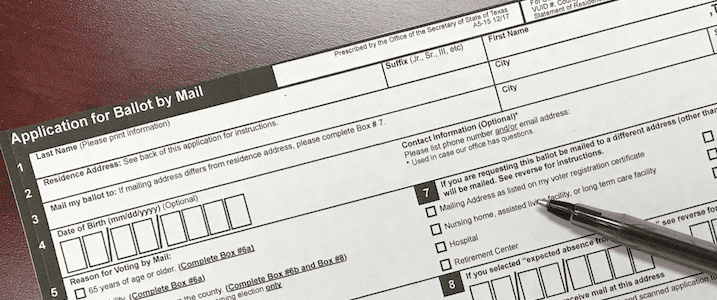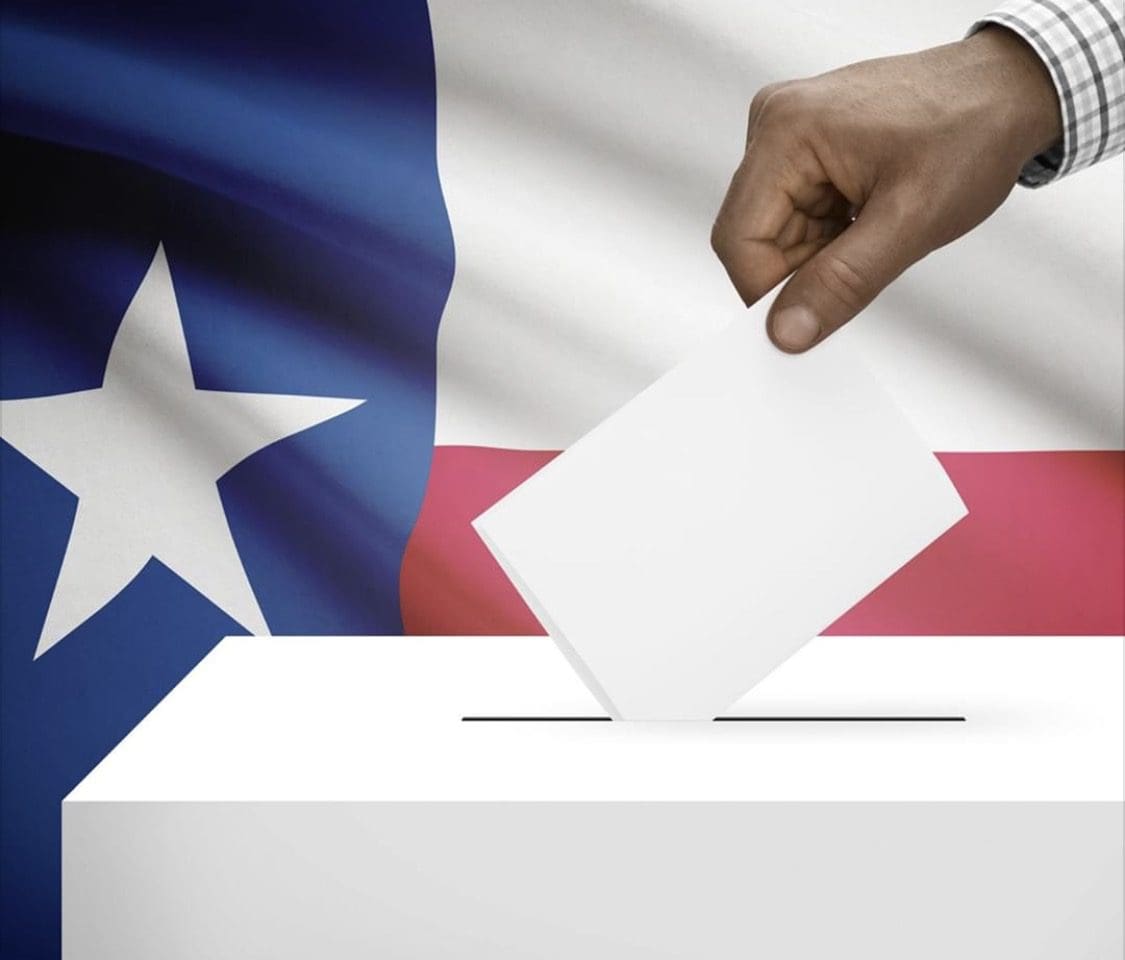Just days after the state’s top law enforcement officer warned county officials to avoid misleading the public on vote-by-mail laws, a North Texas county commissioner wants to tell local voters they are free to break the law.
On Friday, Texas Attorney General Ken Paxton sent a letter to county judges and election officials advising them that state election law does not allow voters to claim disability on mail-ballot applications based on fears of contracting the Chinese coronavirus:
“Accordingly, public officials shall not advise voters who lack a qualifying sickness or physical condition to vote by mail in response to COVID-19.”
Yet Dallas County Commissioner John Wiley Price has proposed doing just that.
Price, one of four Democrats on the five-member commissioners court, added a resolution to Tuesday’s court agenda allowing any voter to claim disability and vote by mail ballot in any 2020 election:
“[A] Dallas County voter who wants to vote by mail can send an application for ballot by mail to Dallas County Elections, check the box on the application indicating ‘Disability’ as the reason for voting by mail, and the elections division will process that application as normal.”
Price cites a ruling last month in a lawsuit filed by the Texas Democrat Party to force Travis County to accept all mail ballots marked “disability.”
According to Price, the district court judge’s ruling in the case means any Texas voter “without established immunity to COVID-19 who wished to vote in any 2020 election has the right to vote by mail” as long as the virus is “in general circulation.”
Paxton, a Republican, said the lawsuit does not change or suspend the law. He said the order allowing all voters to claim disability would not apply outside of Travis County and is currently not in effect pending the state’s appeal.
In Texas, only voters who are 65 or older, disabled, in jail, or outside their home county during an election are eligible to vote by mail.
No one currently verifies whether voters who check the “disability” box are, in fact, disabled.
A voter fraud investigation in Starr County led to the arrest of several campaign workers known as politiqueras for fraudulently checking the disability box on ballot applications of voters who are not disabled, for the express purpose of illegally harvesting their mail-in ballots.
A recent poll shows 62 percent of voters believe expanded voting by mail leads to an increase in voter fraud, including 81 percent of Republicans and 48 percent of Democrats.
Even President Donald Trump has weighed in on the controversy, pointing out that opening up ballot by mail “substantially increases the risk of crime and VOTER FRAUD!”
Mail in ballots substantially increases the risk of crime and VOTER FRAUD!
— Donald J. Trump (@realDonaldTrump) April 12, 2020
Democrat lawmakers have regularly argued against enacting photo voter ID laws for in-person voting, saying most voter fraud takes place with mail ballots. Yet Texas Democrats have set universal vote-by-mail as a policy goal for years, and like Democrats nationwide, they are now using the coronavirus crisis as an opportunity to get through the courts a policy they’ve been unable to win in the legislature.
Voting by mail makes it impossible to verify that ballots are actually cast by eligible voters, free of coercion. Research of national data by the Public Interest Legal Foundation, a law firm dedicated to election integrity, also found 28 million mail ballots went missing in the past decade.
Tuesday’s commissioners court meeting starts at 9:00 a.m.
Dallas County residents can contact their representatives to weigh in on the vote-by-mail proposal.
County Judge Clay Jenkins:
(214) 653-7949; Clay.Jenkins@dallascounty.org
District 1 Commissioner Dr. Theresa Daniel:
(214) 653-6668; Theresa.Daniel@dallascounty.org
District 2 Commissioner J.J. Koch:
(214) 653-6100; JJ.Koch@dallascounty.org
District 3 Commissioner John Wiley Price:
(214) 653-6671; John.Price@dallascounty.org
District 4 Commissioner Dr. Elba Garcia:
(214) 653-6670; Elba.GarciaDDS@dallascounty.org





